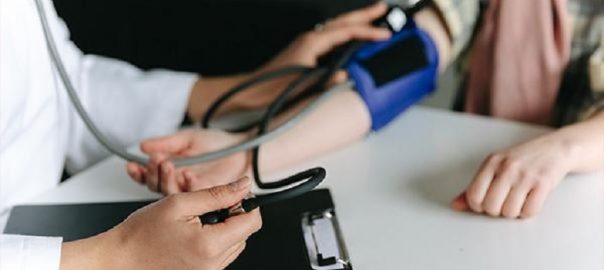Chronic kidney disease (CKD) requires special care before and after requiring a kidney transplant. This is due to possible health complications, especially hypertension, a disease that frequently occurs in patients with CKD. This is why today we want to tell you about the relationship of these diseases and how to identify when they manifest simultaneously.
What is hypertension?
First, it is important that you are clear about what hypertension consists of. It is a disease where the blood pressure (the force of the blood that is generated against the walls of the arteries due to the pumping function that the heart fulfils in order to carry blood throughout the body), is too high and is generated with greater force.
Chronic kidney disease (CKD) and hypertension
A patient with kidney failure has a high possibility of developing hypertension because these diseases are related in two ways.
One of them is the fact that hypertension is one of the main causes of CKD. The foregoing since there is pressure against the walls of the arteries for several years, they will stop working properly. This process reduces the blood supply to the kidneys, to later also suffer damage.
Just as hypertension may appear first, it is possible that it is the other way around, this being a complication of CKD. The cause is that the function of the kidneys is to maintain adequate blood pressure, and if there are deficiencies in these organs, there will naturally be failures to maintain healthy blood pressure.
An important point to consider is that when CKD is the cause of hypertension, the progress of the insufficiency will be accelerated, which means that you should not neglect your treatment at any time, in addition to following the instructions of your nephrologist in Delhi.
Over time, high blood pressure damages the blood vessels in the kidney.
The nephrons of the kidneys are supplied by a dense network of blood vessels with high amounts of blood flow. Over time, uncontrolled high blood pressure can cause the arteries around the kidneys to narrow, weaken, or harden. These damaged arteries cannot supply enough blood to kidney tissue.
- Damaged renal arteries do not filter blood well. The kidneys have small, finger-like nephrons that filter blood. Each nephron receives its blood supply through tiny hair-like capillaries, which are the smallest blood vessels. When the arteries are damaged, the nephrons do not receive essential oxygen and nutrients. Because of this, the kidneys lose their ability to filter blood and regulate the flow of hormones, acids, and salts from the body.
- Damaged kidneys do not regulate blood pressure. Healthy kidneys respond to a hormone called aldosterone which is produced in the adrenal glands, to help the body regulate blood pressure. Kidney damage and uncontrolled high blood pressure contribute to a negative spiral. As more arteries become clogged and stop working, the kidneys eventually fail.
How do I know if my blood pressure is high?
Hypertension is known as the ‘silent killer’ because it has no symptoms, and the only way to know about it is to get measured. However, you should keep in mind that a single high result in a regular check-up does not mean that you have the disease, several follow-up checks should be done to identify or rule it out.
How can I control hypertension as a CKD patient?
Because hypertension can be caused by many factors, it is necessary to start with a series of changes in your daily habits, which includes:
- Follow a plan of regular and efficient physical activity, it is recommended that it be at least 30 minutes a day. You can do this with the accompaniment of your kidney specialist in Delhi.
- Significantly reduce salt intake.
- Do not consume alcohol.
- No Smoking.
These measures and restrictions have shown their efficiency in most cases, bearing in mind that salt is one of the main causes of high blood pressure since sodium levels influence the renin-angiotensin-aldosterone system (the hormonal system that is responsible for regulating blood pressure).
Medications, meanwhile, play a fundamental role in the treatment of CKD as they help prevent and control hypertension. In addition, they help kidney disease progress while contributing to the prevention of urinary infections.
This is why if you have received a kidney transplant you must be extremely responsible with your medical visits, as well as follow each of the recommendations in your diet and physical habits.

